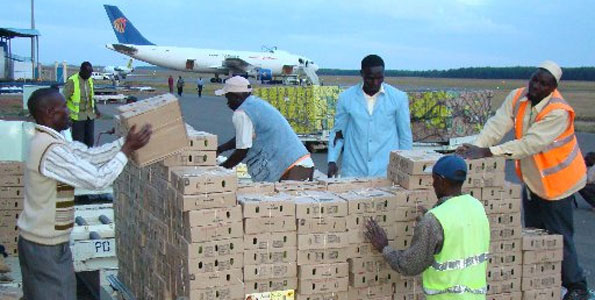Growing fresh farm produce to drive exports: Minister
GOVERNMENT has implored the horticulture sector to improve the output and quality of their produce to enable them to penetrate the export market.
Zimbabwe used to be among the top exporters of horticulture produce in Africa before the economic sanctions imposed by Britain and its allies crippled the sector resulting in closure of key markets.
The Government is now working on coming up with policy interventions that will give impetus to a robust horticulture industry as part of a wider game plan to expand the job market and transform the economy.
Speaking during a tour of Lingfield Farm in Gweru on Tuesday, Minister of State in the Office of Vice President Constantino Chiwenga, Dr Evelyn Ndlovu, said revitalising the horticulture sector was one of the top Government priorities. Lingfield Farm mainly produces flowers, fine beans and peas for the export market.
“The main purpose of these visits is to come up with policy interventions that will give impetus to the Government’s horticulture revival plan,” she said.
Dr Ndlovu said Lingfield Farm was doing well and pledged to engage Treasury to facilitate allocation of more funds towards the horticulture sector. She said Zimbabwe has the best soils, climate and altitude that supports high grade horticulture production.
Dr Ndlovu said Government recognises initiatives by stakeholders in the horticulture sector, which have seen a steady growth in the quality of products. She said capacitating small-scale farmers was
critical in attaining President Mnangagwa’s vision of making Zimbabwe an upper middle-income economy by 2030.
Minister Ndlovu said the adoption of the Global Good Agricultural Practices by players in the horticulture industry will lead to acceptance of local products on the international market.
“GAP will see farmers employing high value production methods that produce competitive products,”
said Dr Ndlovu.
Lingfield Farm managing director, Mr Tatenda Karimazondo, said they have been hard hit by the effects of Covid-19, which has resulted in their flower sector (Lingflora) operating at 75 percent capacity. He said the business was facing a number of Covid-19 induced challenges that have made them to source new markets beyond the traditional European markets.
“The closure of borders and international airports has crippled the horticultural logistical value chain. However, this has driven us to secure new markets in the Far East, Russia and Dubai as flowers are always on demand,” said Mr Karimazondo.
He said the farm was now certified with an international code of practice GAP, which ensures acceptance of products on the international market.
“Most horticulture farmers do not adhere to best practices hence they fail to meet international standards that attract lucrative markets,” said Mr Karimazondo.
Global GAP provides training across the value chain such as pesticide use, post harvesting handling, market driven production and horticulture marketing skills.
“ We are proud that our standards are globally competitive,” said Mr Karimazondo.
Lingfield sits on 450 hectares of land and has a mixed farming approach that involves dairy farming and crop production.
The farm has also partnered Unki Mines in a horticultural training and mentorship programme where the mine has managed to export 15 000 tonnes of peas in the initial phase.-chrnicle.cl.zw











